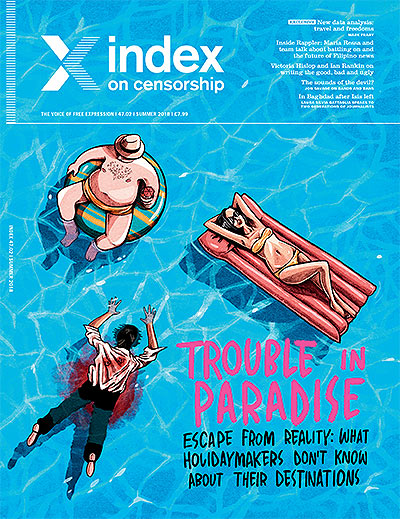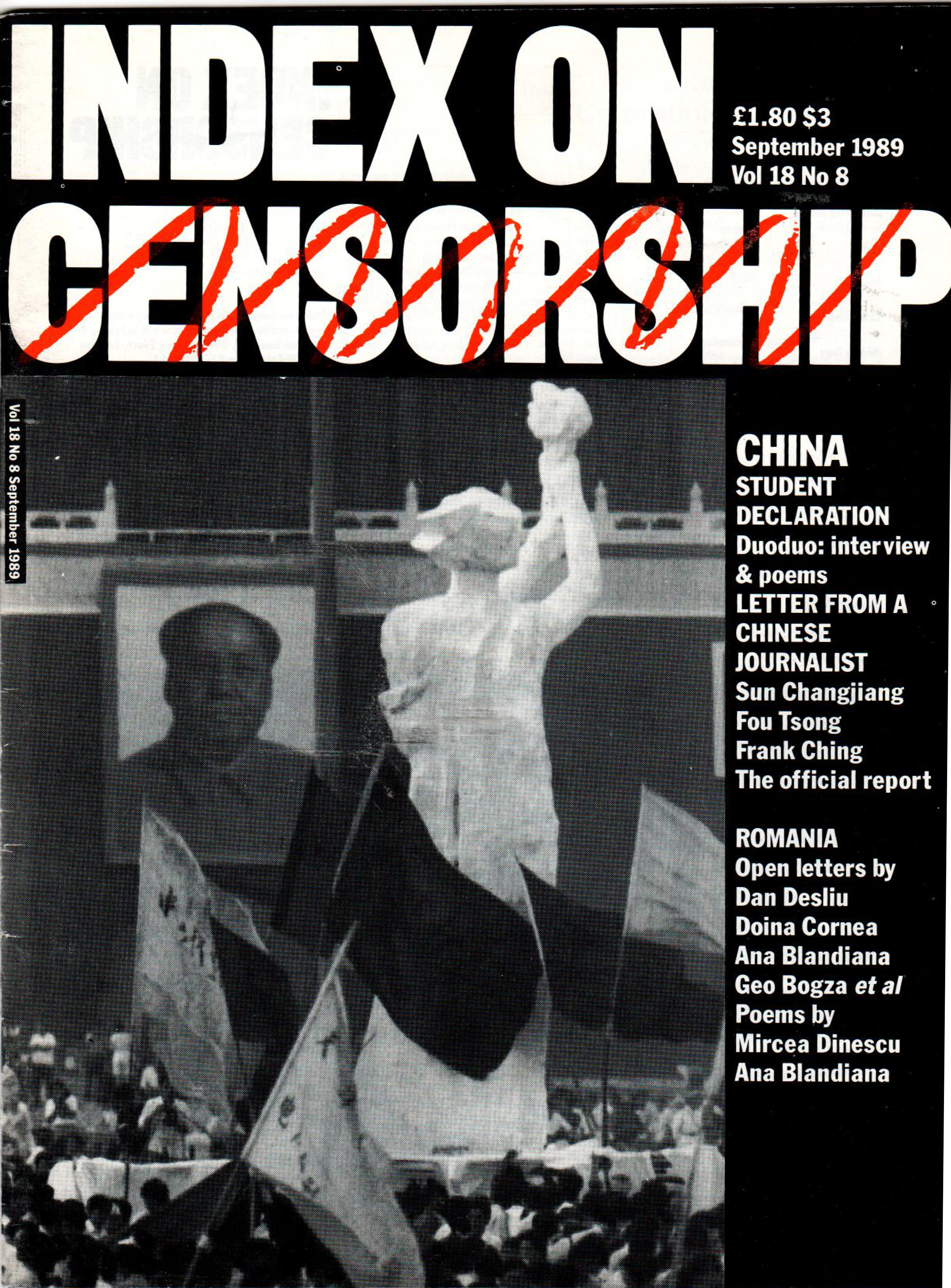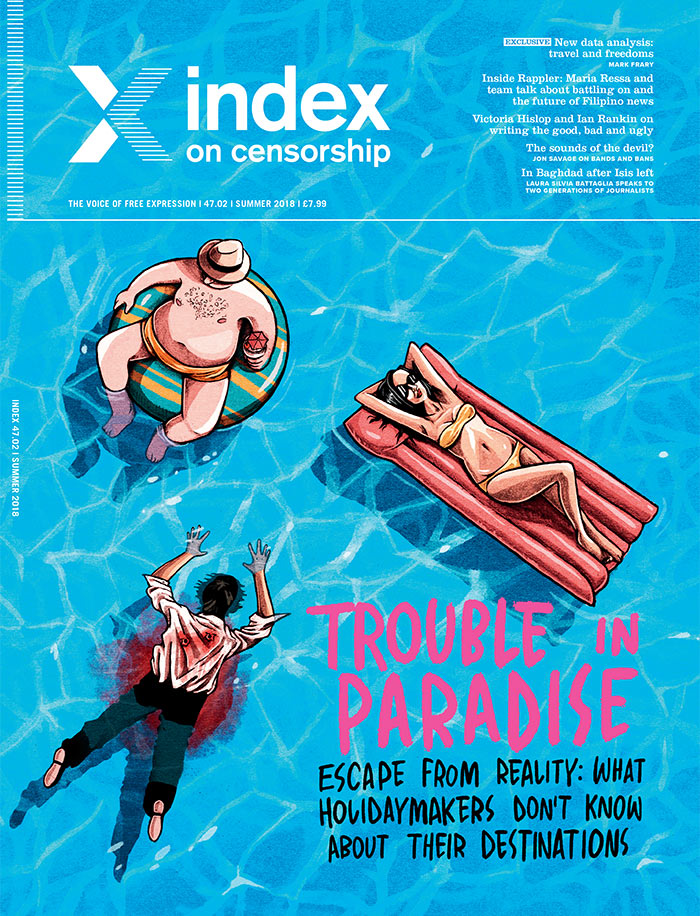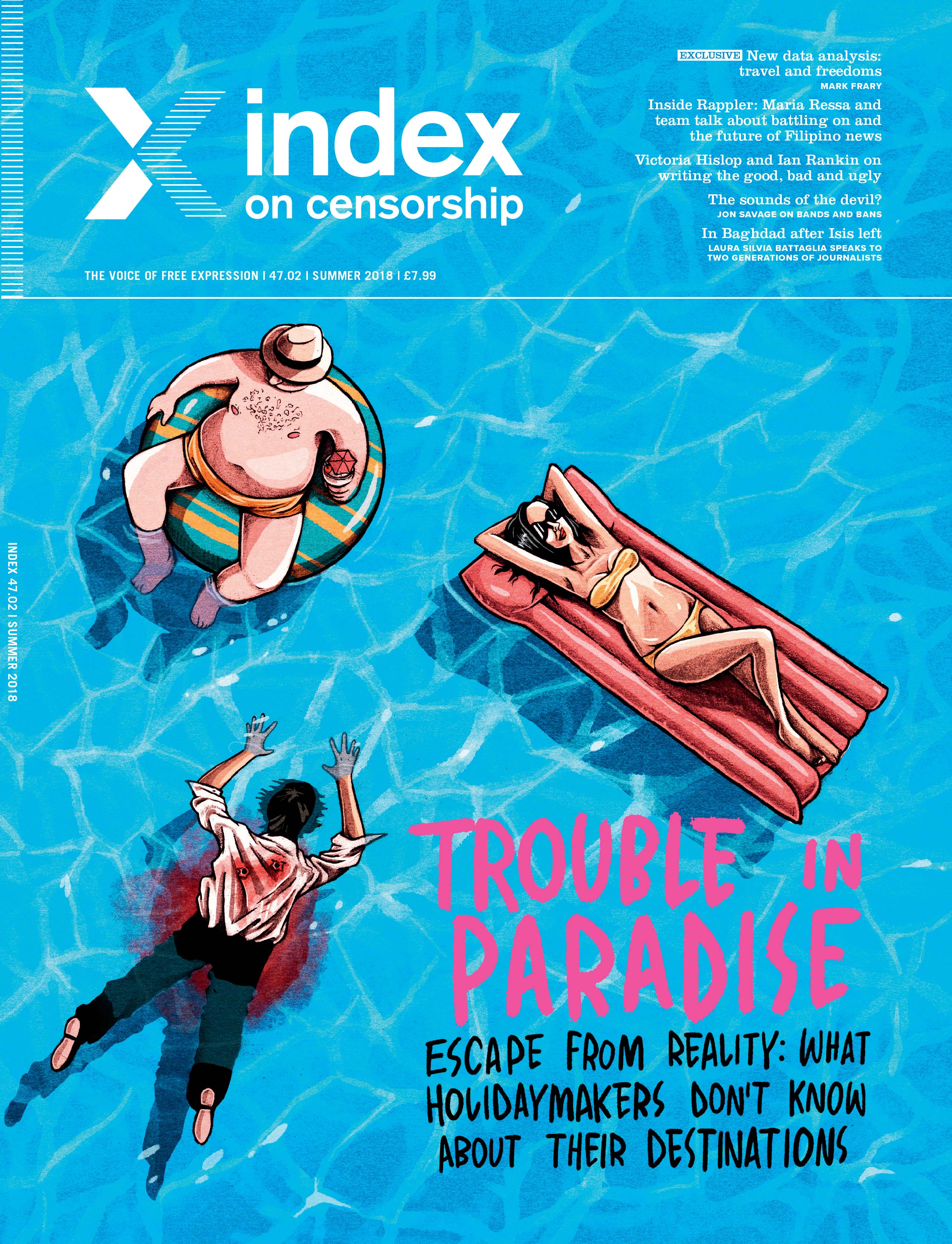A holiday-themed playlist to accompany the summer issue of Index on Censorship, which looks at trouble in paradise


A holiday-themed playlist to accompany the summer issue of Index on Censorship, which looks at trouble in paradise

Index on Censorship magazine Index has compiled a reading list of articles from the magazine archives covering censorship In China.

As “fake news” dominates headlines, Index’s global team of experienced journalists offers tips on how to spot falsehoods before you click and share

Malta’s beautiful tourist image masks a murky underside of this Mediterranean island, writes Caroline Muscat

Travel to any destination, just make sure you report the truth, argue Index panellists at launch of the Index on Censorship summer magazine 2018, Trouble in Paradise

With holidaymakers packing up for their summer trips, a new issue of Index on Censorship magazine reveals the uglier side of countries with tourist appeal and calls on travel writers to do more to give travellers the whole picture.

Crime writers have less to lose than travel writers in describing the underside of holiday spots, argues Rachael Jolley.

The summer 2018 Index on Censorship magazine takes you on holiday, just a different kind of holiday. Visit Malta with top Maltese editor Caroline Muscat. This favourite Mediterranean destination is where a leading journalist, Daphne Caruana Galizia, was brutally murdered approximately 100 metres away from her home back in October. In Baja California Sur, tourists take snaps of themselves next to whales, their lenses rarely taking snaps of another reality – the huge drug war raging in the Mexican state that has made it an incredibly dangerous place to live, as Stephen Woodman explores. The Philippines definitely wins awards for its stunning beaches, just not for its press freedom. Maria Ressa, CEO of Rappler, and Miriam Grace A Go, the site’s news editor, explain the harassment they have faced and why they won’t be silenced. And bestselling authors Ian Rankin and Victoria Hislop show you uglier sides to the tourist hotspots that are the backdrops of their books.

The spring 2018 issue of Index on Censorship magazine takes a special look at how governments and other powers across the globe are manipulating history for their own ends

The summer 2018 issue of Index on Censorship magazine takes you on holiday, just a different kind of holiday. From Malta to the Maldives, we explore how freedom of expression is under attack in dream destinations around the world.
A quarterly journal set up in 1972, Index on Censorship magazine has published oppressed writers and refused to be silenced across hundreds of issues.
The brainchild of the poet Stephen Spender, and translator Michael Scammell, the magazine’s very first issue included a never-before-published poem, written while serving a sentence in a labour camp, by the Soviet dissident Aleksandr Solzhenitsyn, who went on to win a Nobel prize later that year.
The magazine continued to be a thorn in the side of Soviet censors, but its scope was far wider. From the beginning, Index declared its mission to stand up for free expression as a fundamental human right for people everywhere – it was particularly vocal in its coverage of the oppressive military regimes of southern Europe and Latin America but was also clear that freedom of expression was not only a problem in faraway dictatorships. The winter 1979 issue, for example, reported on a controversy in the United States in which the Public Broadcasting Service had heavily edited a documentary about racism in Britain and then gone to court attempting to prevent screenings of the original version. Learn more.